>>188433Sorta similar experience here, but instead of psychedelics its been dreams and nightmares for me. Pushed me out of what you call the world of man, and into the dark world as you call them. I've come up a bit with a system, its sorta Platonic but I think it for the most part describes what your thinking and gives a helpful implication on where your next steps should be (it helped lead me this way at least.)
You can think of the world very similar to your own description of it, a human world (I call the fact world), the dark world (I call the rational world), but I have another plane of existence above both called the divine world. Think of the fact world like it is, a world of facts. We live here and see here. Everything we get out of here is through our sense, all which are facts, true to us and thus reality. However one fact may conflict with another, and often times do in this world do to other experiencing facts differently, so it is a lower form of reality.
The reason world is able to be glimpsed into by the fact world and is mathematical and logical in nature. Counting on your fingers, facts, leads to this world, counting the circumference of a circle and then its radius and the relation between leads to numerical laws, and all these lead into a glimpse of the reason world. The world of reason has laws, laws that are much harder to break then facts, ideas that are near impossible to prove wrong. But all ideas can eventually be thought to death, and then proven invalid or illogical. Reason as a world ends into doubt, at the end of the day 1=0 somehow (forgetting the name of the proof that shows this but it exists and when I'm not dead on sleep I'll post it's name.) So the reason world is a higher form of reality but still not absolute, it exists in laws and not truth.
Lastly there is the divine world, which is in fact, divine. It like counting can be seen through driving from reason into its nature as a higher plane like how using facts can break you into the reason world. Same with this, symbols form the reason world can help you enter into to divine wrold. These symbols of reason all lead back to one central item, which is what is divine. This divinity, is the plane, the highest form of what is real. It is what is real, and all that is, facts, and reason both come from it just like how facts lead to reason reason must lead to it, but what is divine needs neither fact or reason to exist.
If this is starting to sound like a God, then it is because it must be. This divine thing is our quest, but since we only really function in the fact world, or if we try really hard can sorta work in the reason we are limited in a quest of working off this divine through lower symbols. The divine is The Good, but we cannot work with The Good and must deal with a singular symbol of good, which is a good. The a good is what is talked about in Spengler Faustianism tackling a good of infinity and movement, while the Romans tackled a good of bodilyness. Our two cultures handled different a goods but both derived from The Good.
In our life we must strive for The Good, to the best of our ability, this is what we must always try for. The divine, a symbolic form of life since this is what leads us closes with The Good one in the fact world can get. This means embrace what is our a good to the best of our ability, and learn from other groups a goods to better our appreciation for our own a good and strive to make our better understanding of our a good translate into a closer relationship with The Good. Personally for me this is traditionalism and fundamentalism in your religious choice. Catholicism seems to me to be the only bridge between a good in our world view of a good and tradition and thus a closer relationship to The Good in western thought. If you are a Slav though it'd obviously be orthodoxy (not to say I wouldn't press for the inquisition on you heretics), but if your not then you'd be jumping off the a good in quest for The Good which will lead you astray.
Same goes with paganism, which is the same deal, you dump the a good in favor of chasing The Good, which means you lose all the symbols for the a good and end up with a twisted The Good, which is why it feels occultish rather then divine. The same shouldn't be done for the other way around, going all in on a good leads to nihilism since if you strive for symbols but not for the divine then your end goal is perfection in your symbol but nothing beyond that. Buddhism, Confucianism, Stoicism, and Liberalism all suffer from this and so are nihilistic and terminal. Eventually these ideas break down since they have nothing, while ideas focused on The Good lead to ideas of mixed a good and The Good which lose their way into soley a good by losing touch with the mythstic aspects of The Good. I'm sure you see the cycle.
In the end I encourage you to think about the West's a good, infinite space, and The Good, and how you can best bridge it. I'd say from my understanding Catholicism is the only thing that I really know that can, and I mean real hard core orthodox Catholicism, not the weak shit you see out of heretics.
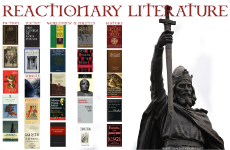
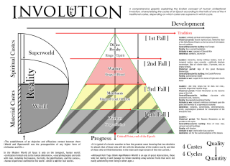
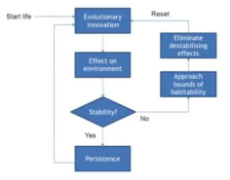
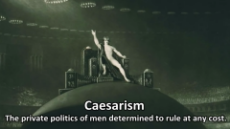
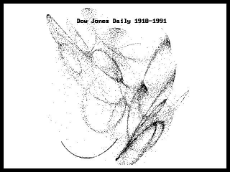
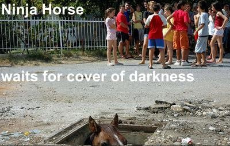






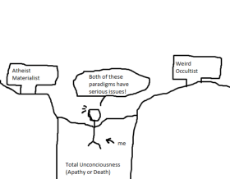
 Ex: Type :littlepip: to add Littlepip
Ex: Type :littlepip: to add Littlepip  Ex: Type :eqg-rarity: to add EqG Rarity
Ex: Type :eqg-rarity: to add EqG Rarity 